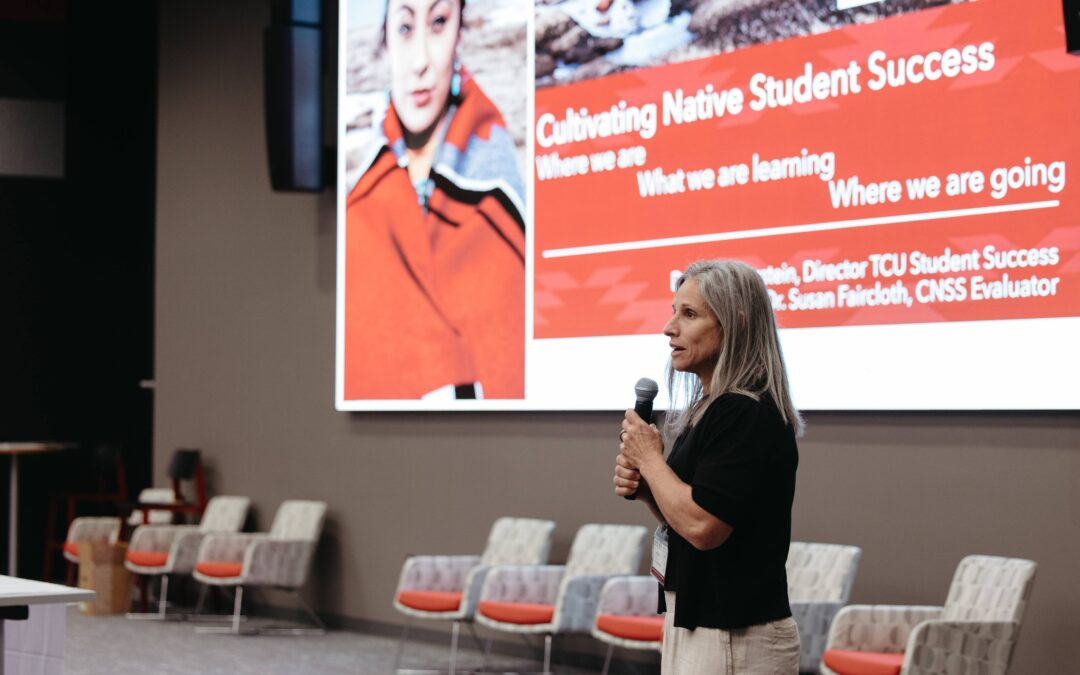American Indian College Fund’s Ded Unskanpi Adult Basic Education Program to Address Education Gap for Native Students
Grants Tailored for Five Tribal Colleges through 2024
August 2, 2023, Denver, Colo.— The American Indian College Fund’s Ded Unskanpi (which translates from Dakota as “we start here”) Adult Basic Education Program will support five tribal college and university (TCU) partners through June 2024. Adult Basic Education (ABE) and literacy programs are essential to students’ success in an HSE program, college, career, and life, working to support students to develop literacy and problem-solving skills. The program will address the critical gap in the education pathway for Native students to help them earn their high school equivalency degrees, continue to college, find meaningful employment, and forge healthy lives.
The program resulted from the College Fund’s high school equivalency program needs assessment. The College Fund will tailor support for each TCU partner in the program. Some TCUs set goals to increase language arts testing completion, participation in the ABE programming, training for staff, preparatory workshops, or to pilot counseling services. Examples of College Fund support to be provided under the program may include ABE class and course development; support for staff professional development and training, student resources, and ABE events; staff salaries and educational programming; and transportation, childcare, food access, and internet access for students.
Tribal colleges and universities who were awarded grants in the program include Oglala Lakota College (South Dakota), Saginaw Chippewa Tribal College (Michigan), Salish Kootenai College (Montana), Sinte Gleska University (South Dakota), and Southwestern Indian Polytechnic Institute (New Mexico).
Cheryl Crazy Bull, American Indian College Fund President and CEO, said, “Since their beginning, Tribal higher education institutions have recognized that they can be a welcoming place for graduates of high school equivalency programs to continue their education. Those of us who for various reasons are unable to complete high school, have a path to post-secondary education that meets them where they are in their educational journey. Investing in these programs lifts up individuals and their families by removing a barrier to college admissions.”
About the American Indian College Fund—The American Indian College Fund has been the nation’s largest charity supporting Native higher education for 33 years. The College Fund believes “Education is the answer” and provided $14.45 million in scholarships and other direct student support to American Indian students in 2021-22. Since its founding in 1989 the College Fund has provided more than $284 million in scholarships, programs, community, and tribal college support. The College Fund also supports a variety of academic and support programs at the nation’s 35 accredited tribal colleges and universities, which are located on or near Indian reservations, ensuring students have the tools to graduate and succeed in their careers. The College Fund consistently receives top ratings from independent charity evaluators and is one of the nation’s top 100 charities named to the Better Business Bureau’s Wise Giving Alliance. For more information about the American Indian College Fund, please visit www.collegefund.org.
Journalists—The American Indian College Fund does not use the acronym AICF. On second reference, please use the College Fund.










